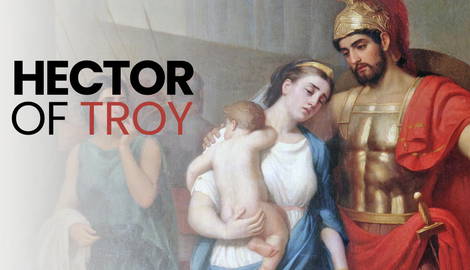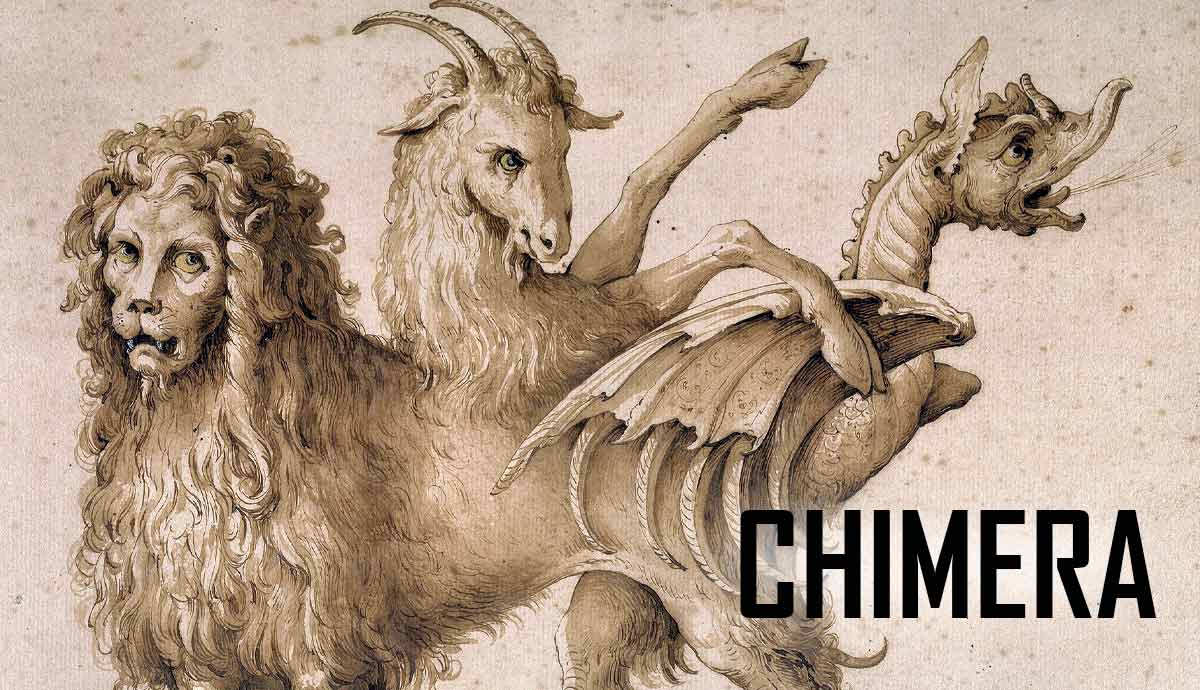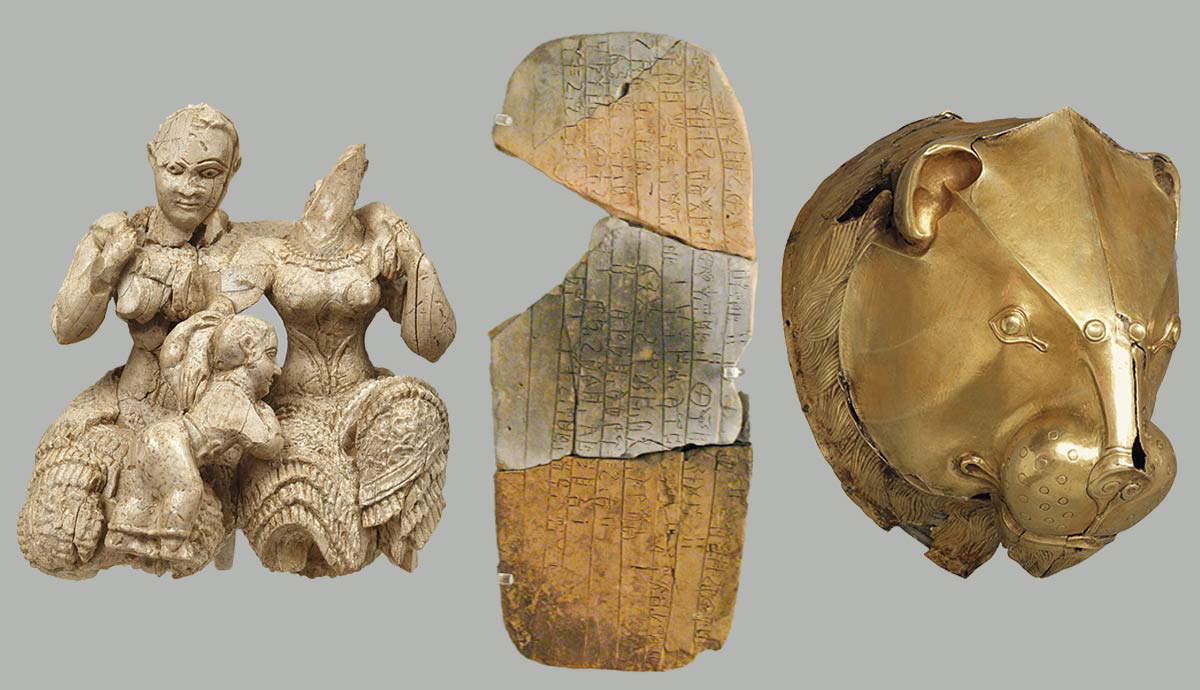
Hector, the firstborn prince of Troy, is celebrated as the greatest of the Trojan heroes in Homer’s Iliad. He is admired for his exceptional skills as both a warrior and a military strategist. For nearly a decade, Hector successfully led the Trojans in their efforts to resist the might of the Greek armies. Known for his unwavering sense of duty, he fought against formidable heroes to protect his family, city, and brother, Paris, until the very end. Discover the extraordinary tale of Hector, the noble hero of the Trojan War.
Life Before War: Family Matters

Hector was the eldest son of King Priam and Queen Hecuba of Troy, and he was the heir to the Trojan throne. Some accounts, however, claim that Hector was not actually Priam’s son, but rather the son of the god Apollo, who had an affair with Hecuba. Hector had many siblings, and according to Homer, Priam fathered 50 sons and twelve daughters with his primary wife, Hecuba, as well as several secondary wives and concubines.
While various ancient authors provide extensive lists of Priam’s children, with differing names, some of the most significant siblings (aside from Hector) include his younger brother Paris. Favored by Aphrodite, this handsome yet reckless hero abducted Helen of Sparta, ultimately igniting the Trojan War. Other notable siblings include Deiphobus, a brave warrior, and Troilus, the youngest of Priam’s children, whose death sealed the fate of Troy. Polyxena, Hecuba and Priam’s youngest daughter, was sacrificed at the foot of Achilles’ grave, similar to Iphigenia, to appease the winds so that the Greeks could sail home.

Priam’s twin children, Cassandra and Helenus, are significant figures. Both twins had prophetic abilities, with Cassandra possessing the gift of true prophecy. However, Apollo cursed her so that no one would ever believe her predictions.
In addition to his many siblings and loving parents, Hector’s most significant family members were his beloved wife, Andromache, and their son, Prince Astyanax. Andromache was a princess of Cilician Thebes in Anatolia (a different city from the more famous city of Thebes in Boeotia). She was regarded as the ideal wife, embodying the qualities of womanly virtue within the Homeric tradition.
Life Before War: The Noble Hero

Hector was regarded as the bravest and greatest warrior and a brilliant military strategist among the Trojan forces. However, his most exceptional qualities were not his bravery or combat skills but his sense of duty and nobility. In stark contrast to his more cowardly and fickle brother, Paris, Hector was portrayed as the ideal leader—dedicated to protecting his family and city despite the odds and the likelihood of failure.
One significant difference between Hector and many other heroic characters in the Trojan War was his pursuit of peace rather than glory on the battlefield. Hector embodied the ideals of a selfless and noble leader. In medieval Europe, he was included among the Nine Worthies, a group of nine historical and legendary figures who represented the values of honor and chivalry.
Although not as handsome as his brother Paris, Hector was described as an attractive, fair-looking man with noble features, curly black hair, and a well-groomed beard. Some writers claimed that Hector had a slight lisp, a deep voice, and a fierce but kind spirit. In line with his exceptional sense of duty and nobility, Hector is often portrayed as caring deeply for his subjects regardless of their social class.

Many heroes who participated in the Trojan War, including Hector, possessed remarkable armor and weapons. Hector had a silver-studded sword that would eventually come into the possession of Ajax the Great, who ultimately used it to take his own life. However, it was Hector’s bronze armor, particularly his shining helmet, that stood out. The helmet, a gift from Apollo, became one of his most distinctive pieces of equipment. Hector was often called “Hector of the glimmering helmet” because of its radiant shine. While the helmet gleamed brilliantly, it also inspired fear; for instance, when Hector removed his helmet to say goodbye to his son, Astyanax, the child was struck with fear at the sight of the dazzling helm.
The Story of Hector: Defender of Troy

The epic tale of the Trojan War began when Paris, the brother of Hector, abducted Helen of Sparta, the most beautiful mortal woman in the world, from her home and family and brought her to Troy. Helen’s husband, Menelaus, the king of Sparta, was understandably upset and sent an envoy demanding her return. However, Paris refused this request. As a result, Menelaus and his brother Agamemnon, the king of Mycenae, called upon their Greek allies and launched over a thousand ships to retrieve her.
Hector disapproved of Paris’s abduction of Helen. Despite his sympathy for the invading Greek army, Hector, duty-bound, did not hesitate to take up arms to defend his city, family, and misguided brother from the approaching Greek forces. As Troy’s greatest warrior, Hector became the leader and chief military strategist of the Trojan armies. Renowned for his bravery and nobility, Hector led his forces from the front lines, fearlessly guiding his men into battle.

Hector killed the first Greek invader, the hero Protesilaus, in single combat as he stepped onto Trojan soil. The Greeks knew of a prophecy stating that the first person to set foot on Trojan land would die. This knowledge caused Protesilaus, Ajax, and Odysseus to hesitate as they approached the shoreline. However, cunning Odysseus cleverly threw his shield to the ground and jumped onto it, tricking Protesilaus into following him, ultimately leading to Protesilaus’s swift demise at the hands of Hector.
Despite Hector’s courageous leadership, the Trojans could not prevent the invading Greeks from establishing a foothold at Troy’s beachhead, forcing Hector and his army to retreat behind the city’s impenetrable walls for safety.
The Story of Hector: The Duel With Ajax

Although it had its fair share of skirmishes, the Trojan War was primarily a prolonged and drawn-out affair that remained at a relative standstill for over nine years. Both the Greeks and the Trojans grew weary of the lack of progress in the war. In response, Helen’s husband, Menelaus, openly challenged Paris to a duel to settle the conflict once and for all. If Menelaus emerged victorious, the Greeks would take Helen back and leave; if Paris won, the Greeks would give up on rescuing Helen and return home.
However, Paris refused to accept Menelaus’s challenge, preferring to cower behind the safety of Troy’s walls and his brother’s army. When Hector found out about Paris’s refusal to accept the challenge he rather uncharacteristically lost his temper. In Book Three of the Iliad, Hector confronts his brother Paris for selfishness and cowardice. Having selflessly prioritized duty and honor over personal desires, Hector expresses nearly nine years of pent-up frustration regarding the turmoil Paris has caused for both him and their city. He criticizes Paris as an evil womanizer, arguing that his refusal to fight not only reflects his cowardice but also dishonors every brave Trojan warrior who has sacrificed their life in the war.
Hector’s harsh words ultimately compel Paris to accept Menelaus’s challenge. As anticipated, Menelaus, the more experienced fighter, quickly begins to dominate the duel against Paris. However, just as the Spartan king is about to deliver the killing blow, Paris manages to escape with the help of his patron, Aphrodite, who transports him safely behind the walls of Troy.

In the commotion following Paris’s escape, a Trojan archer fires an arrow that strikes Menelaus in the shoulder, injuring him and igniting an all-out battle between the Greeks and Trojans. This entire incident casts the Trojans in an extremely negative light. Following his brother Helenus’s advice, Hector decides to end the fighting by challenging one of the Greeks’ greatest heroes to a duel to atone for his brother’s failure.
The Greeks agree to Hector’s proposal, and nine of their best warriors draw lots to determine who will face Troy’s greatest hero. Ajax the Great wins the right to duel Hector. The two brave and skilled fighters engage in a long, intense battle, each demonstrating equal strength and skill. Eventually, two heralds intervene and call an end to the fight as the sun begins to set.
In a show of respect for their hard-fought duel, Hector and Ajax the Great agree to exchange gifts. Hector offers his silver-studded sword, which Ajax will ultimately use to take his own life, while Ajax gives Hector his girdle, which Achilles will later use to tie Hector’s body to his chariot and drag him around the walls of Troy.
The Story of Hector: The Deception of Patroclus

In the days following the duel, Hector seized a rare opportunity to launch an attack on the fortified Greek camps. Fortunately for Hector and the Trojans, the Greeks’ greatest warrior, Achilles, had chosen to withdraw from the war. Achilles’s decision stemmed from a dispute with King Agamemnon, who had used his authority as the army leader to take Achilles’s war prize, a captive woman named Briseis.
Briseis had become the ultimate prize and a symbol of status among all the treasures and captives the Greeks had acquired during the war. This argument between Agamemnon and Achilles led both men to prioritize their glory over their duty to secure victory in the war.
Without Achilles, Hector’s forces began to dominate the battlefield. However, Ajax the Great managed to push Hector back at one point by throwing a boulder at him and knocking him out. Just when Ajax was about to finish Hector off, Apollo intervened, rescuing the Trojan hero and taking him back to Troy. Hector quickly recovered from Ajax’s attack and rallied the Trojans for a decisive assault, successfully breaching the Greek fortifications and setting their ships ablaze.
The situation had become dire for the Greeks, and it was clear that they would lose without the might of Achilles. With the Greeks’ defeat almost certain, Patroclus, Achilles’s best friend and maybe lover, urged Achilles to set aside his pride and rejoin the fight.

Achilles stubbornly refused to fight but allowed Patroclus to wear his famous armor and lead his unit of Myrmidons to push the Trojans out of the Greek camps. Donning Achilles’s distinctive armor, Patroclus succeeded in driving the Trojans back, creating panic among their ranks at the thought of facing Achilles. Encouraged by the Trojans’ retreat, Patroclus defied Achilles’s orders to stay within the camp and charged forward to confront them on the open battlefield. While Patroclus’s disguise instilled fear in most Trojans, brave Hector remained unfazed and confronted him directly. Despite being an experienced fighter, Patroclus was no match for Hector’s skills, and the Trojan hero quickly emerged victorious by killing Patroclus.
Hector suspected his opponent was not Achilles and confirmed his suspicions when he stripped Patroclus of the armor as a war prize. After another intense battle, the Greeks managed to reclaim Patroclus’s body from Hector with the help of the heroes Ajax the Great and Menelaus. After retreating to Troy, Hector chose to wear Achilles’s armor, which enhanced his strength, but Zeus viewed this choice as a foolish act by a man who had all but sealed his fate.
The Story of Hector: Achilles’s Revenge

Achilles was heartbroken upon learning about the death of his dear friend Patroclus. However, his grief soon turned into an overwhelming rage and a desire for revenge. Setting aside his earlier quarrel with Agamemnon, Achilles rejoined the battle, now equipped with a new set of divine armor forged by Hephaestus and given to him by his mother, the Nereid Thetis.
Consumed by anger, Achilles charged onto the battlefield, mercilessly slaughtering countless Trojans. His relentless assault forced the Trojans to retreat behind the safety of Troy’s walls. However, one noble Trojan warrior, driven by a strong sense of duty to protect his city, its inhabitants, and his beloved family, chose not to retreat.
Hector confronted Achilles directly, despite the pleas of his parents and his wife, Andromache, who begged him to consider their son and stay safe behind the walls of Troy. Hector comforted Andromache and shared his fears. He was not afraid of dying; instead, he feared what might happen to her, their son, and all the citizens of Troy if he did not stand up and try to protect them from the Greek army.

Hector bravely chose to stand against Achilles, but when the greatest of the Greek heroes charged toward him, Hector lost his nerve and began to flee. Achilles pursued Hector, chasing him around the walls of Troy three times. Eventually, Athena intervened on behalf of Achilles by playing a trick on Hector. The goddess of wisdom disguised herself as Deiphobus, Hector’s brother, and told Hector that he would fight alongside Achilles against him. Encouraged by the appearance of his brother, Hector stopped running and turned to face Achilles.
As the two greatest warriors of the Trojan War were about to confront each other, Hector asked Achilles to swear an oath that the battle winner would honor the loser by returning their bodies to their allies for a proper burial. Still seething with anger, Achilles refused, asserting that such sentimentality had no place on the battlefield.

The battle between the two mighty warriors was swift and deadly. Achilles was the first to act, hurling his spear at Hector, but he missed. Hector then threw his spear, which Achilles expertly parried with his shield. Athena revealed her true identity at that moment, dropping her disguise as Deiphobus, and returned Achilles’s spear to him before disappearing.
In that instant, Hector realized the cruel hand fate had dealt him; deceived by the gods, he stood alone, unable to defend himself against Achilles’s final attack. Achilles charged forward and defeated Hector by stabbing him through the neck with his spear. As Hector lay dying, he pleaded with Achilles again to return his body to his family for burial, but Achilles still refused. With his last breaths, Hector predicted that Achilles would die at the hands of his patron, Apollo, and his brother, Paris.
Death of a Hero: The Body of Hector of Troy

Hector’s death did not quench Achilles’s rage and thirst for revenge. Achilles stripped Hector of his armor, slit his ankles, and then used the girdle of Ajax to fasten Hector’s body to his chariot with rope. With Hector’s body secured to his chariot, Achilles proceeded to dishonor it by dragging it around the walls of Troy three times. In his anger, Achilles desecrated and mistreated Hector’s remains for twelve days. However, despite Achilles’s efforts, Hector’s body remained unharmed due to Apollo’s intervention.
On the twelfth night, Hector’s father, Priam, snuck into the Greek camp with the help of Hermes to negotiate with Achilles for the return of his eldest son’s remains. After twelve days, Achilles’s anger started to fade. The gods warned him that there would be consequences if he continued to dishonor the dead. Remembering the god’s warnings and moved by Priam’s words, which reminded Achilles of his father, Priam successfully persuaded Achilles to return Hector’s body.

After Hector’s body was returned to Troy, the Trojans and Greeks agreed to a twelve-day truce to allow for the necessary funeral rites for Hector and the many brave Trojan and Greek heroes who had died in recent days. The Trojans celebrated the life of their greatest and most noble hero with a lavish funeral that included games and feasts. Hector’s death marked a significant turning point in the Trojan War and signaled the end of Homer’s Iliad. In fact, the final line of this great epic refers to Hector’s funeral: “On this wise held they funeral for horse-taming Hector.”

Hector of Troy was arguably the most honorable, noble, and selfless hero in the Trojan War. He bravely led his city in battle, even after being placed in a difficult situation due to the selfish actions of his brother Paris. Despite this, Hector never grew to despise his brother, nor did he blame Helen, whose beauty was said to have sparked the war. In contrast to the selfish, deceitful, and prideful heroes like Paris, Odysseus, and Achilles, Hector shone brightly as an honest and well-meaning protector of his home. He was motivated by his deep love for his family and a sincere desire to protect them and the city he cherished.










